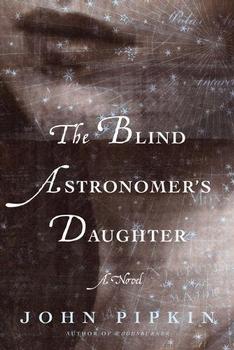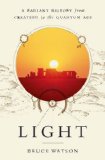Summary | Excerpt | Reviews | Beyond the book | Read-Alikes | Genres & Themes | Author Bio

The Secret History of Evolution
by Rebecca StottWhy life on Earth exists - how human and non-human life began - are mysteries humankind has been exploring as long as our brains have been developed enough to form the questions. Next to theories on the origin of the universe, no one issue is as controversial or mind-bendingly huge in scope.
Imagine our distant ancestors gazing up at the stars. Did it cross their minds how wondrous the sky was, with the sun and the moon, plus myriad sparkling stars, shooting comets and meteors? Could they conceive of an "infinity," or were they too concerned with eating - and not being eaten - to engage in more than a survivalist mentality? The answer to this would seem to be a resounding yes as, based on the prevalence of creation myths at the foundation of most cultures it seems likely that as soon as early humans developed a sense of self they started wondering where they came from.
Sometimes I feel hardly better educated than these early humans, suffering brain overload from pondering these immense, yet elemental, questions. The good news is we're fortunate to live in an era in which many scientists, including anthropologists and physicists, have written about evolution and the origin of species in ways that non-specialist readers can not only understand but use to form our own conclusions. Of course, one still has to be on the lookout for books that are slanted to suit the hypotheses of the writer. That's where it all gets a bit sticky, as to be well-informed, we have to read many of the available arguments, then make up our own minds. Fortunately, there are wonderful books like Rebecca Stott's Darwin's Ghosts, which give the reader a seemingly unbiased, chronological timeline of all known explorations on the study of the theory of evolution, works with no apparent preconceived agenda or axe to grind.
The true singularity of Stott's book is her in-depth study of philosopher/scientists starting with Aristotle - who, like many early thinkers, concentrated on the evolution of animals - proceeding through all the other major theorists in the field up to the age of Darwin himself. If Stott had stopped there it would have been a very good book, one I'd highly recommend. But what makes Darwin's Ghosts amazing is she goes even further to investigate how the developing scientific thinking on the origins of life influenced the arts and popular culture. For example, Mary Shelley's Frankenstein (1823), which was inspired in part by the electric experiments of Luigi Galvani on dead animals and corpses, which led to new (albeit inaccurate) ponderings on the essence of life among the intellectuals of the day, three decades before Darwin's The Origins of Species was published.
It's no wonder there have been such wildly divergent opinions on evolution throughout recorded history. And regardless of how close we're ever able to get to the "truth," there will be dissenters, those maintaining that their own theory trumps whatever may become the popular consensus. The issues are thorny, over and above the actual science, involving those whose religious faith interferes with the idea of a process of natural selection, free of the influence of a higher being. On the other hand, some are able to reconcile science and religion, suggesting that a higher power may have set evolution in motion, an idea that smooths the way between these otherwise divergent issues.
Whatever the reality may be, as long as we have writers like Rebecca Stott there's hope we'll at least understand the questions, if not all the answers.
![]() This review was originally published in The BookBrowse Review in June 2012, and has been updated for the
March 2013 edition.
Click here to go to this issue.
This review was originally published in The BookBrowse Review in June 2012, and has been updated for the
March 2013 edition.
Click here to go to this issue.

If you liked Darwin's Ghosts, try these:

The Blind Astronomer's Daughter
by John Pipkin
Published 2017
A novel of the obsessions of the age: scientific inquiry, geographic discovery, political reformation, but above all, astronomy, the mapping of the solar system and beyond. It is a novel of the quest for knowledge and for human connection - rich, far-reaching, and unforgettable.

by Bruce Watson
Published 2016
Although lasers now perform everyday miracles, light retains its eternal allure. "For the rest of my life," Einstein said, "I will reflect on what light is." Light explores and celebrates such curiosity.
Your guide toexceptional books
BookBrowse seeks out and recommends the best in contemporary fiction and nonfiction—books that not only engage and entertain but also deepen our understanding of ourselves and the world around us.